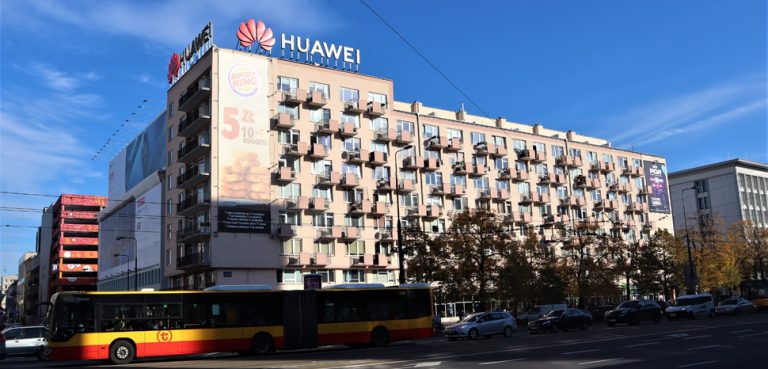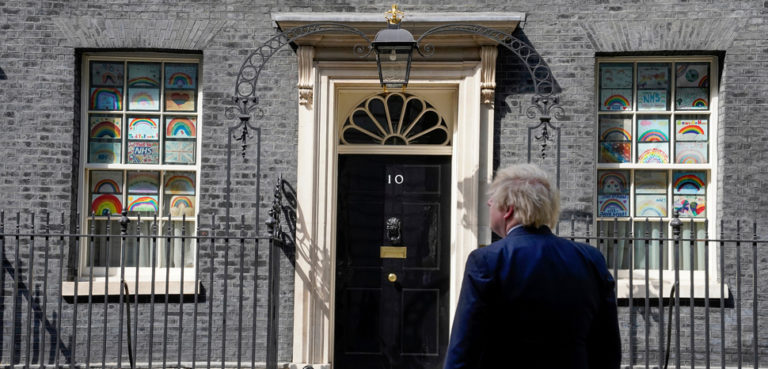While there are serious grounds to argue that Euroscepticism in many European countries is bound to significantly increase as a result of the national governments’ (and by extension the EU’s) handling of the COVID-19 pandemic, it is far more likely that these Eurosceptic sentiments will amplify the trend of pushing established political parties into such territory, thus further mainstreaming the phenomenon, rather than resulting in major electoral benefits for nationalist-populist parties occupying the political fringe.
In their 2018 book National Populism: The Revolt Against Liberal Democracy, political scientists Roger Eatwell and Matthew Goodwin establish that the so-called ‘Four Ds’ (characterized as four historic shifts) have been crucial in making large swathes of the populations in Western Europe increasingly receptive to the messages of the nationalist- populist actors since at least the beginning of the 21st century. However, the unique nature of the COVID-19 health crisis may at least temporarily place some nationalist-populist parties that have opposed dominant narratives on the coronavirus and general pandemic control measures on the wrong side of history from the standpoint of many potential supporters.
The first of the ‘Four Ds’ concerns the distrust of what is regarded as an increasingly elitist nature of liberal democracy and the political establishments as a whole, with the implication that more ‘direct’ models of democracy such as plebiscites and referendums may provide superior alternatives.
The multi-faceted threats posed by COVID-19 have arguably blurred some of the dividing lines between “elites” and “masses,” resulting in majorities of Western Europeans supporting lockdown-related measures against the spread of the virus during the spring months of 2020 when the first pandemic wave hit the continent. Despite indications of pandemic fatigue in the autumn months, triggering numerous protests against the closures of sectors of the economy often organized by low-key nationalist-populist groups, the general public’s support for strong government-mandated measures remained intact in countries such as the UK, Germany, and Spain, to take three examples, even after mass vaccinations had started in December 2020. In fact, in Germany more than 50% of the right-wing populist Alternative for Germany party’s own supporters backed the government’s policies in relation to COVID-19 during the winter of 2020, notwithstanding the party leadership’s anti-lockdown rhetoric around the same time. Similarly, politician Matteo Salvini from the Northern League, which is sometimes classified as far right, saw public opinion in Italy turning against him when he was perceived to be acting as a spoiler to Prime Minister Giuseppe Conte’s response in the days following the declaration of the first national emergency.
Given that COVID-19 has spread to or indirectly affected virtually all of the sovereign states in the world and many of them cannot by any means be considered to be liberal democracies, it is becoming inordinately difficult for nationalist-populist actors to convincingly argue that the restrictions imposed on the wider society are part of a nefarious plot on the part of a Western “deep state” to establish control. For instance, the populists in the West who gravitate towards Vladimir Putin are not in a position to credibly claim that there has been a different Russian way of dealing with COVID-19, precluding the need for lockdowns, given that Russia was actually at loggerheads with Belarus, one of the few outlier countries when it came to this issue, during the spring of 2020.
The authors also zero in on a second major shift that has been identified as beneficial for populists over the previous years – the increasing trepidations about a potential destruction of the nation, attributable to mass immigration and rapid ethnic change.
Ironically, strong internal measures within countries, such as lockdowns, are bound to go hand in hand with border closures and travel restrictions, resulting in a (temporarily) deglobalized world or a partial reversal with regard to certain globalization trends, due to the decrease in cross-border population movements. The governing parties in Germany have on occasion implemented strict border controls with certain countries within the EU in order to curb the spread of the virus, drawing criticism from the EU Commission. Thus, the gravity of the pandemic situation has caused the governing parties in even ‘model Europeanizers’ such as Germany to find themselves at odds with EU institutions and to increasingly examine issues through a “national” rather than a “European” lens, perhaps unwittingly placing some of the core concerns of nationalist-populist parties on their agendas (and acting upon them). It could also be argued that populists that have devoted their efforts to opposing lockdowns and expressed support for a quick return to the ‘old normal’ have not been sufficiently active in gaining a foothold in the economic nationalism niche that has recently opened up once again.
The third “D” factors in the relative deprivation brought about by unequal economic settlements, as a result of which certain groups such as the members of the working class increasingly feel left behind relative to the more affluent.
While the COVID-19 pandemic has certainly exacerbated economic disparities and the lockdowns have resulted in disproportionate burdens suffered by the less well-off segments of society, an issue which nationalist-populist factions in different countries have often highlighted, it needs to be noted that right-wing populists are able to stand out from far left and labour competitors not primarily due to their economic policies, but mainly because of their ability to address identity-related concerns that are frequently perceived to be deliberately swept under the carpet by a politically correct elite. In fact, identitarian aspects and what Francis Fukuyama has described as a demand for dignity have been more powerful explanatory factors than economic grievances in the case of what can be considered to be two major national-populist triumphs against the “politics of the establishment” that occurred in 2016 – the election of Donald Trump and the success of the Brexit campaign, the latter campaigned for by non-mainstream parties such as UKIP and the English Democrats. Thus, nationalist-populist politicians who overemphasize the economy side of the equation when it comes to the national economy versus the national health debate within the COVID-19 climate, may back themselves into a corner, inadvertently creating the impression that they are driven by narrowly materialist rather than post-materialist (such as identity-related) concerns, while it is the latter that are regarded as especially salient by their constituents.
The fourth long-term trend instrumental in sustaining the momentum for the populists is the voters’ dealignment from the traditional parties, bringing about a more volatile political system and reduced loyalty to the mainstream party families, essentially inviting a larger percentage of the populace to throw their weight behind new parties.
However, over the course of the pandemic, incumbent governing parties in Western countries have generally been able to retain their levels of support, with the outcomes of a number of major elections, such as Joe Biden’s convincing victory in November 2020, tacitly suggesting that the pendulum may actually be swinging toward political realignment. Furthermore, a YouGov survey conducted in July and August 2020 indicated a sharp decline in populist tendencies in comparison to 2019 in eight European countries (Germany, France, Italy, Spain, Poland, Sweden, Denmark, and the UK), with smaller proportions of respondents expressing a belief that a few powerful special interests are working to the detriment of the countries’ progress. Even if the COVID-19 pandemic is not the main driver when it comes to bucking the trend toward dealignment, it certainly does not appear to be helping matters from the populist standpoint.
While populism in Western Europe will remain a force to be reckoned with in the near future, the peculiar manifestations of the COVID-19 pandemic have seen nationalist-populist actors on the political periphery struggle to remain relevant and formulate messages that are both anti-establishment and resonate well with the COVID-19 angst of the populace. It is the mainstream parties that seem likely to take advantage of any upsurge in Euroscepticism that is attributable to the shortcomings in the EU’s approach to the pandemic, as COVID-19 has to an extent forced their hands in incorporating populist demands into their party platforms, paving the way for the sidelining of their populist challengers.
The views expressed in this article are those of the authors alone and do not necessarily reflect those of Geopoliticalmonitor.com.




